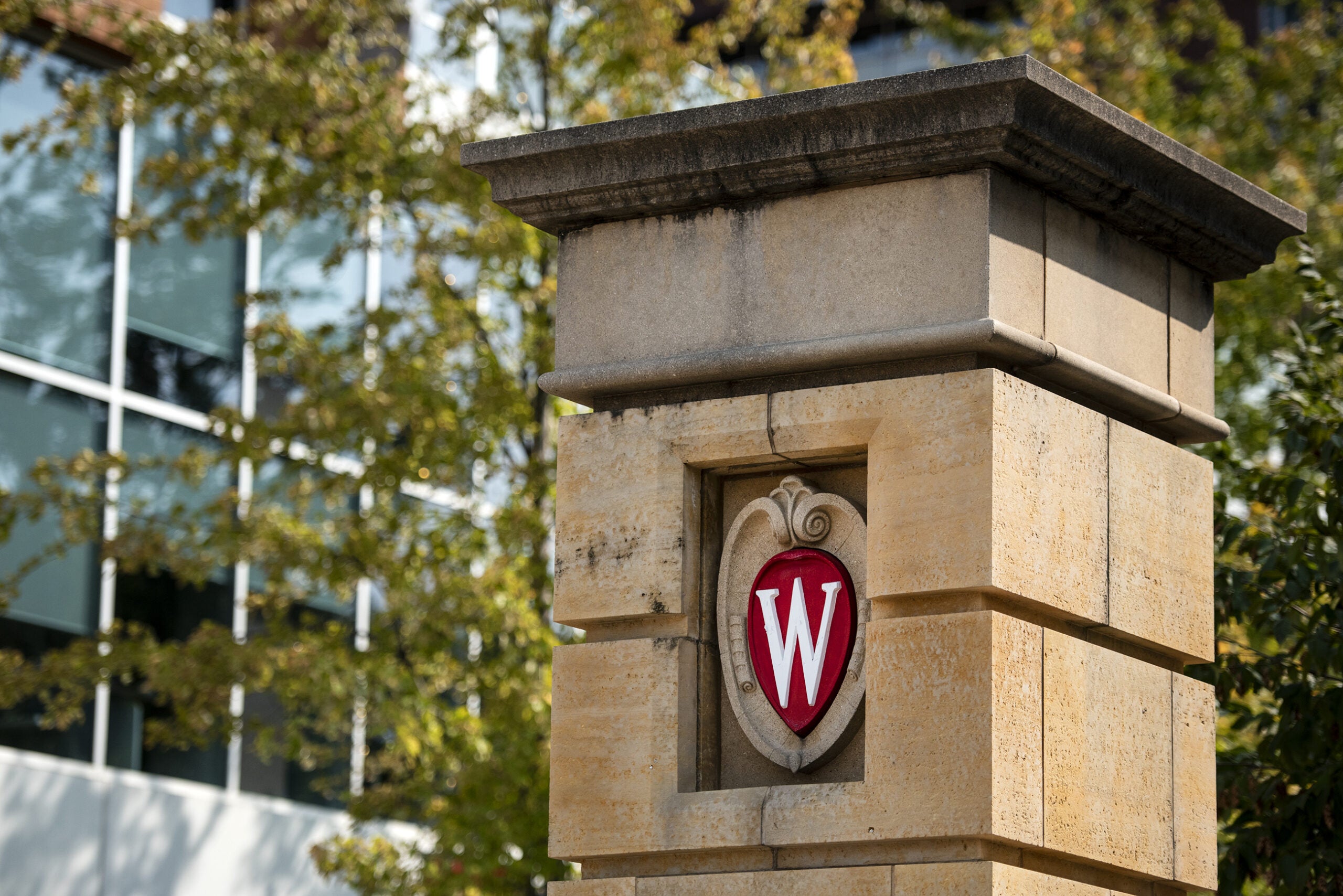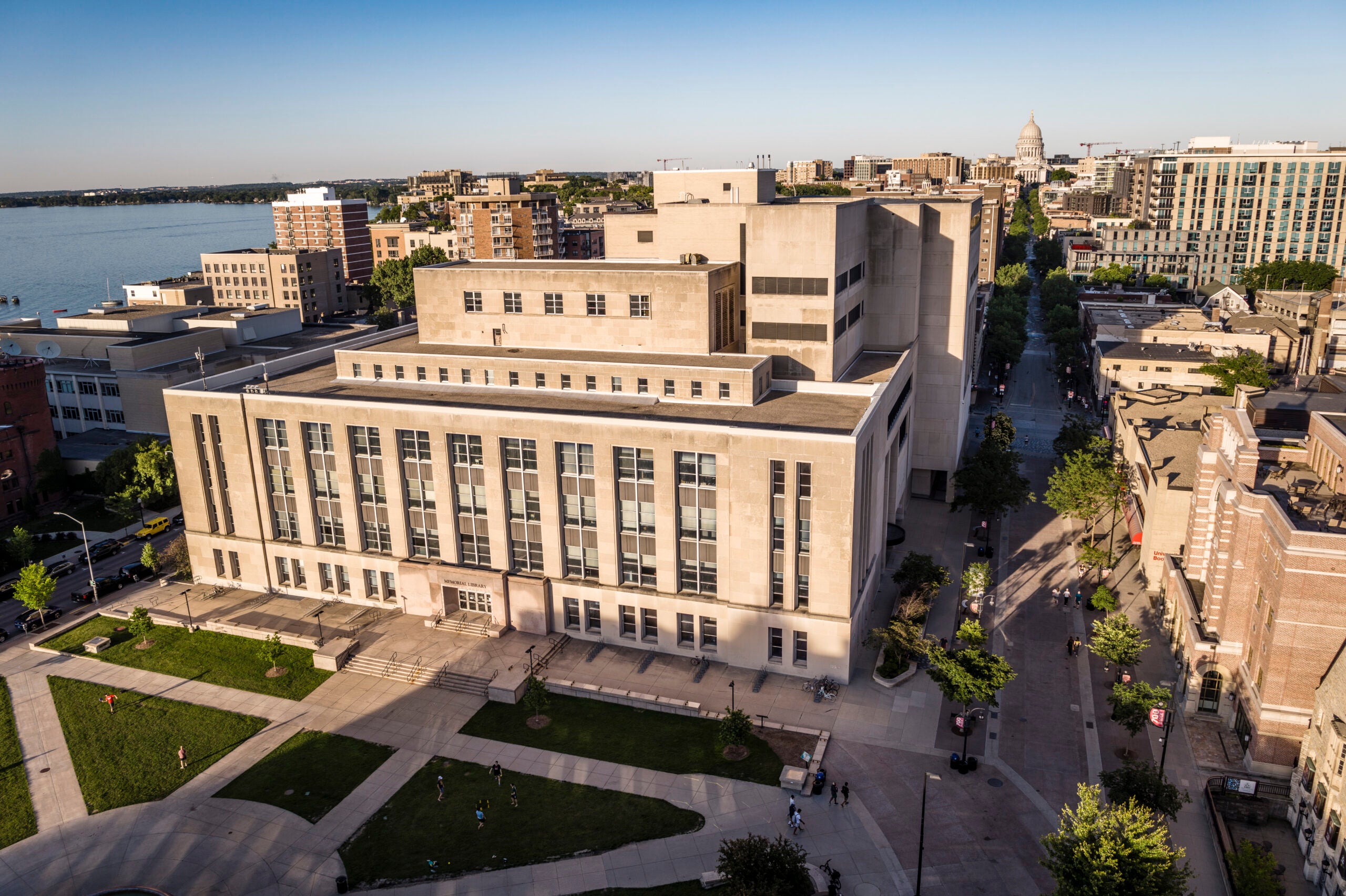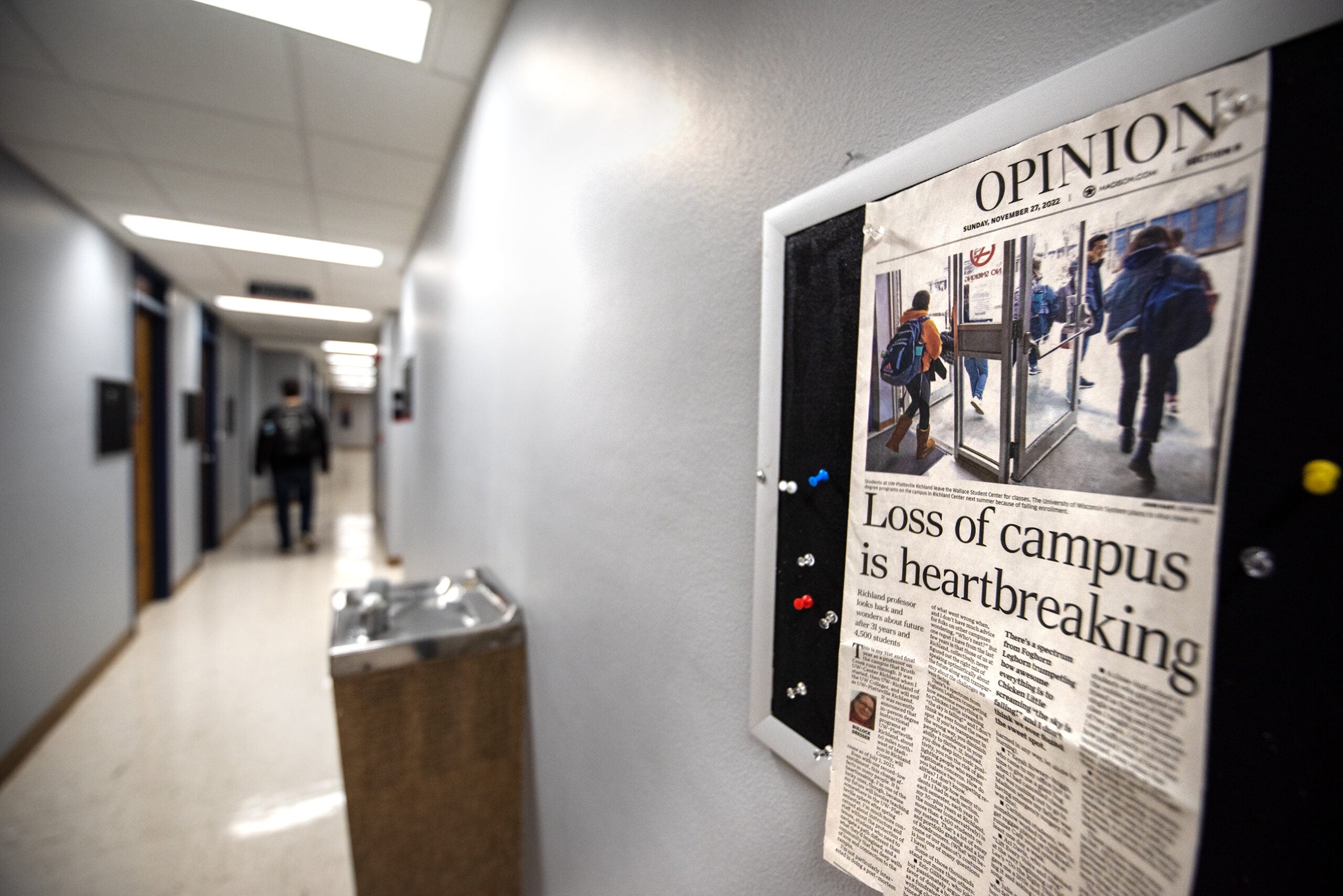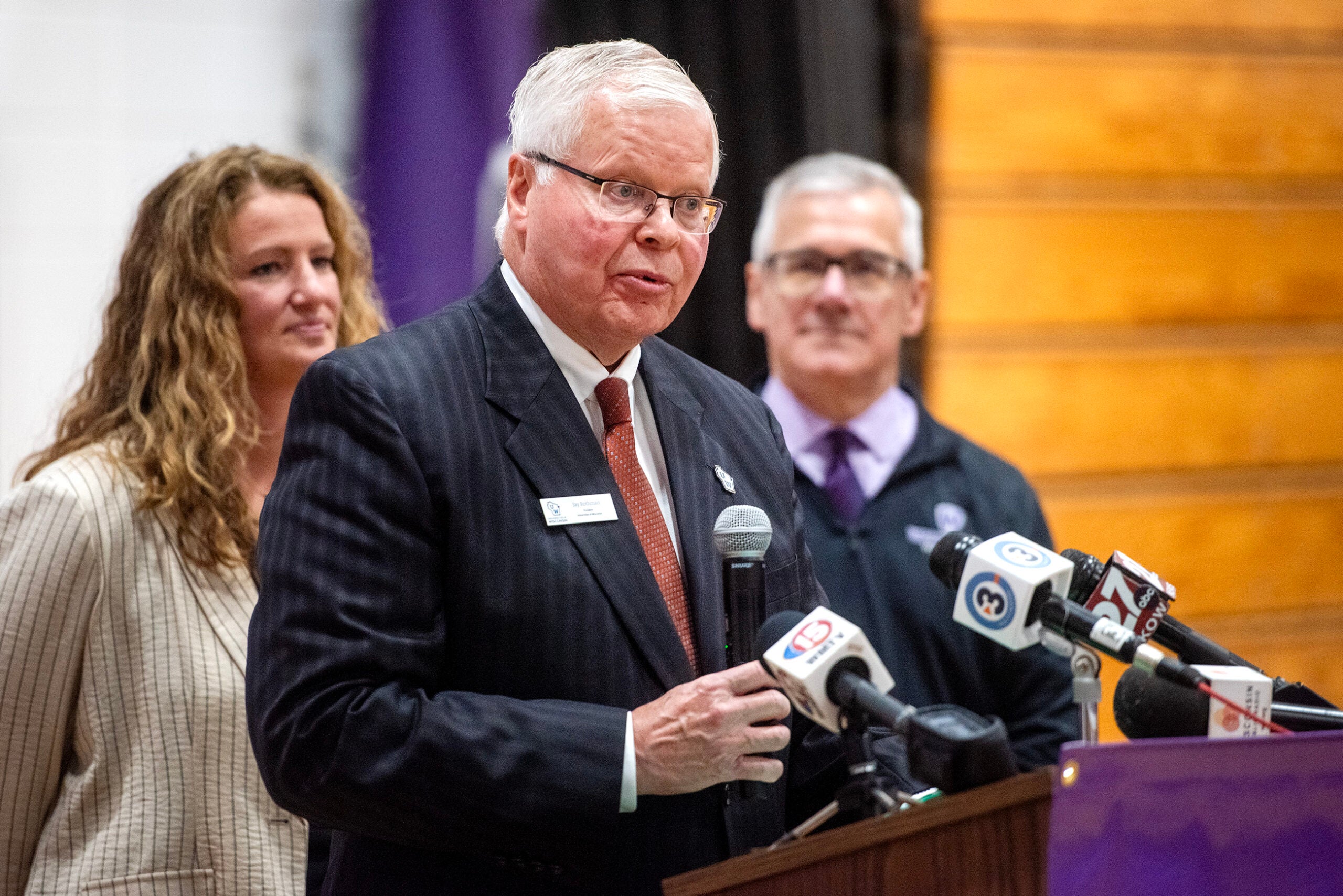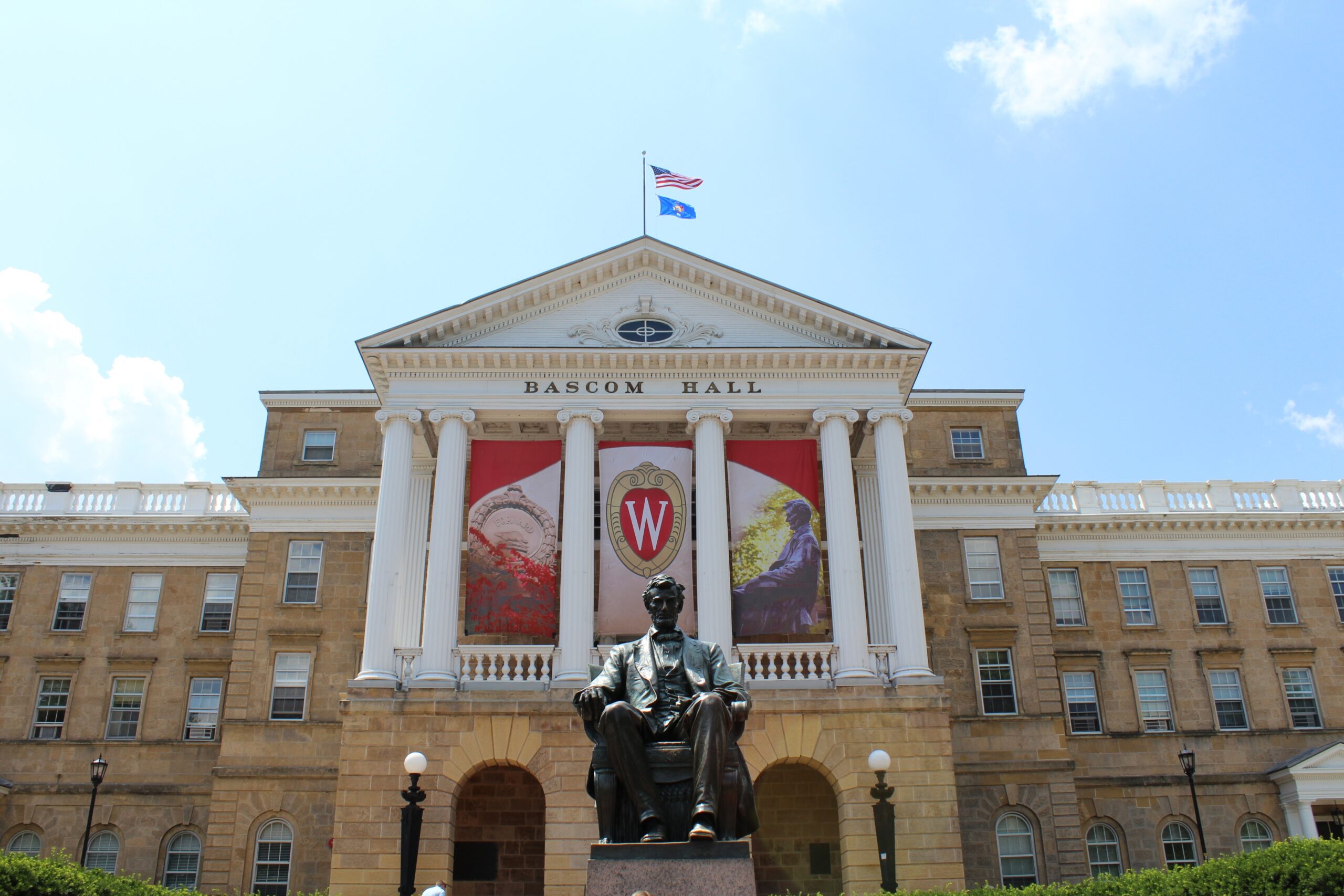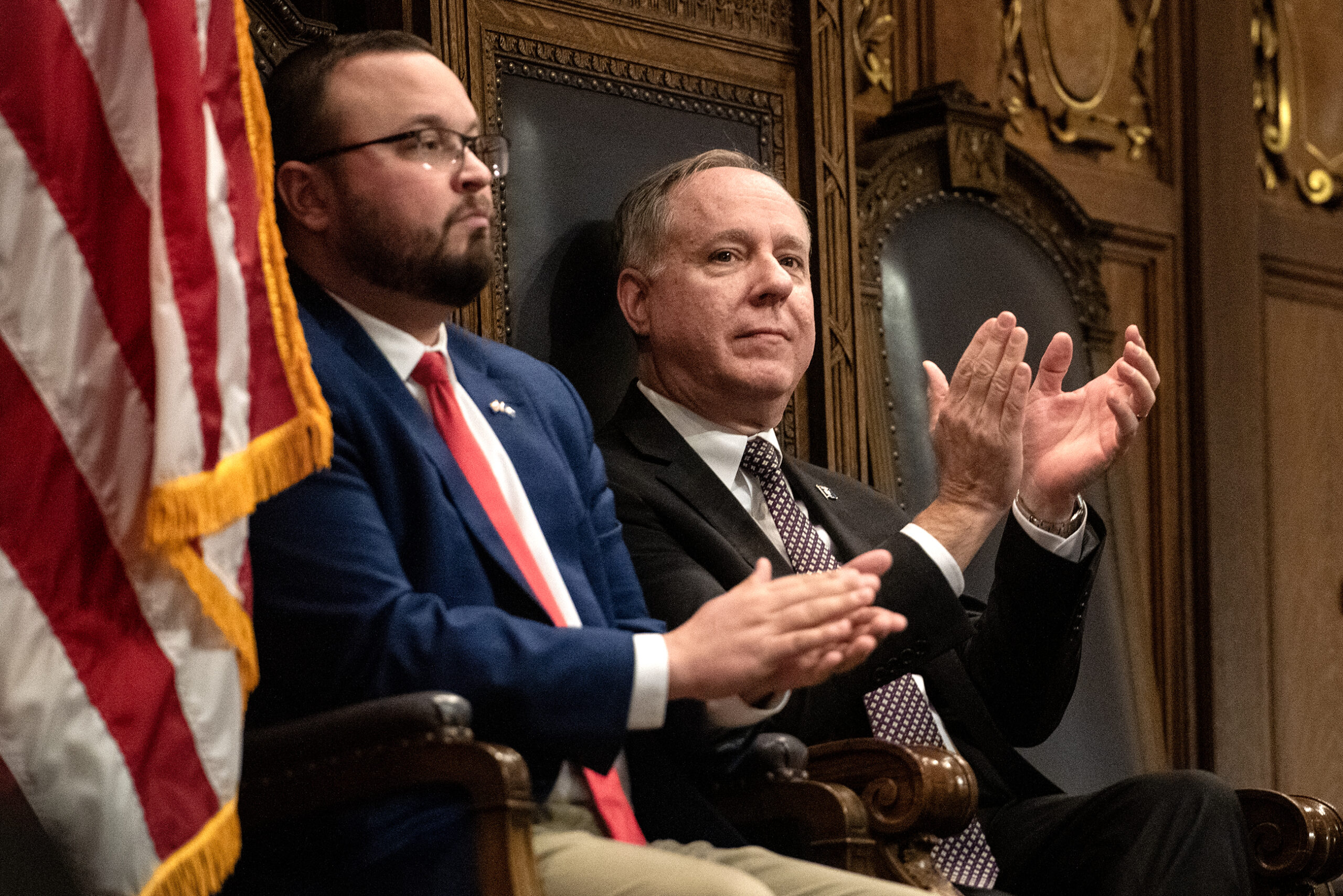Advocates for higher education say it’s the wrong time for lawmakers to be considering a funding cut for Wisconsin’s university system.
Republicans in the state Assembly are floating the idea of slashing $87 million from the Universities of Wisconsin as part of the biennial budget. Last week, Assembly Speaker Robin Vos told reporters that he supports the cut, citing concerns about “too much political correctness” within the university system.
This comes after UW asked for an $855 million funding increase this state budget cycle, which UW President Jay Rothman has said is necessary to compete with neighboring states after years of low rankings for public funding of higher education. Gov. Tony Evers also called for a substantial boost for the university system in his 2025-27 budget proposal.
News with a little more humanity
WPR’s “Wisconsin Today” newsletter keeps you connected to the state you love without feeling overwhelmed. No paywall. No agenda. No corporate filter.
On Monday, state Rep. Dave Murphy, R-Greenville, told WPR’s “Wisconsin Today” that the $87 million cut is “a negotiating point,” not necessarily the final number.
“The day the $855 million was suggested, we all knew that that wasn’t going to happen. And so then the question is: Where can we come to an agreement? Is an $87 million cut the right place or where in-between there might we fall?” Murphy said. “And I think we’re getting to that. We’re making some progress.”
But higher education advocates argue that a cut of any size would be a blow to the university system, which is already facing financial challenges as the Trump administration cuts research funding from the National Institutes of Health and other federal research agencies. UW-Madison announced Monday that campus units will need to cut their budgets by 5 to 7 percent amid the uncertainty of federal funding.
“If the feds are pulling away from what’s most important to Wisconsin — research, economic development, solid education for the workforce of the future — then I don’t see how the state can pile on. They need to step up,” said Terry MacTaggart, a former chancellor of UW-Superior and former head of the Minnesota state university system.
MacTaggart told “Wisconsin Today” that looking at the history of budget cuts to the university system, UW has already done “a heck of a lot of belt-tightening.”
“The University of Wisconsin — more than most in the country, I would say — have been to the well and reduced their resources and tried to do more with less and still perform as it is,” he said. “I mean, it’s a world-class institution, one of the glories of the state of Wisconsin.”
Since 2023, several of UW’s two-year colleges have closed, and the UW-Oshkosh Fox Cities and UW-Milwaukee Waukesha campuses are shutting down operations next week. And over the past two years, UW-Oshkosh, UW-Parkside, UW-Platteville and UW-Milwaukee have undergone layoffs of faculty and staff.

Neil Kraus is a professor at UW-River Falls and president of United Falcons, the campus branch of AFT-Wisconsin. He told “Wisconsin Today” that he worries that additional budget cuts would lead to more campus closures or layoffs even though there are other areas of spending, including technology platforms and consulting firms, that could be scrutinized.
“The UW system is spending $22 million on the platform Navigate. We’re spending almost a quarter of a billion — that’s with a ‘B’ — on HR software,” he said. “When is everything going to be on the table in budget discussions and not just faculty and staff lines?”
When asked who is at the table during budget talks, Murphy raised concerns about a lack of transparency from the university system about “how things are done.”
“There are lots of complaints that we get from around the state about ‘Why does a particular campus get the amount of money that they do?’ and if you ask for the metrics of how that’s being figured out, you don’t get it,” he said.
MacTaggart said he has heard this concern a lot during his years as a leader in higher education, and it often comes down to better communication.
“If a legislator or governor has a question, the university should pony up the response. And frankly, I’m sure they will,” he said. “If anybody’s got data, it’s the university. Why would they try to hide it?”
Kraus said he would like to see transparency from lawmakers and university administrators in this decision-making process, especially if the finalized budget includes a cut to the university system.
“It shouldn’t be left to Freedom of Information Act requests and things like that to figure out where money is going,” he said. “I think the most important thing is to make sure that we as faculty and staff and students and the taxpayers know exactly how every dollar is being spent.”
MacTaggart said he believes that “the future of the university is critical to everyone in the state.“ He hopes Wisconsin lawmakers will think about future generations as they continue budget deliberations.
“Many of them have kids and grandkids, and I would hope that as this debate goes forward, they think about what kind of life those kids are going to have 10, 15, 20, 30 years from now,” he said.

